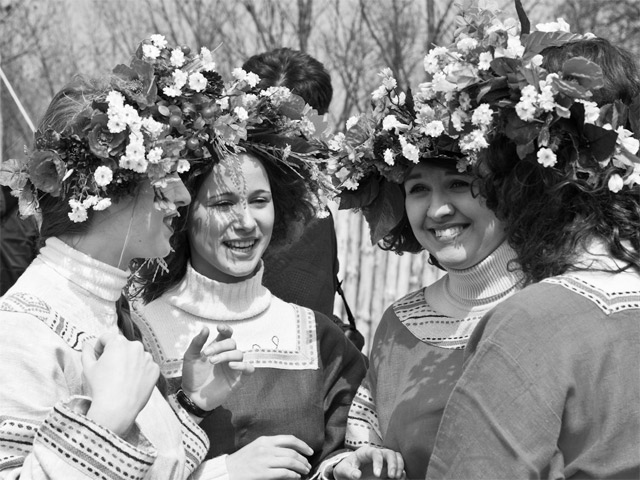[EN] До 14 июня принимаются заявки на участие в конференции «Концептуализация человека в славянской и евразийской культурах»
Princeton University, October 18–19, 2013.
 988
988 
© flickr.com/photos/ashenwolf/
Conceptualizing the Human in Slavic and Eurasian Culture
Princeton University, October 18-19, 2013
An Interdisciplinary Graduate Student Conference
Department of Slavic Languages and Literatures
Princeton University
Keynote Speaker: Prof. Mikhail Iampolski, NYU
Conceptualizing the Human is an interdisciplinary conference dedicated to the changing concept of the human in Slavic and Eurasian culture. While scholars, including Slavicist Mikhail Epstein, have recently devoted much attention to the “crisis in the humanities,” our conference will turn to the many ways in which “the human” has been perceived, re-imagined, interrogated, and critiqued.
The 1917 revolution induced a radical re-evaluation of what it meant to be human among Russian intellectuals. In the Soviet Union, writers like Platonov, Bulgakov, and Zamiatin envisioned how the human being might transform itself under changing social conditions. New technologies influenced Gastev’s and Vertov’s close scrutiny of the mechanics of human action. In the first Czechoslovak Republic, Karel Čapek posed the question of what it means to be human in physical and cognitive terms in his science-fiction prose, as well as in terms of ethical judgment and the pursuit of truth in his mid-1930s trilogy. Earlier, thinkers such as Fyodorov, Chernyshevsky, Dostoevsky, and the Decembrists incorporated fantasies or critiques of the “new man” into their thought, while contemporary writers like Sorokin and Pelevin have used images of physical violence to challenge traditional notions of human dignity.
In keeping with the wide-ranging possibilities of this topic, we will accept proposals from scholars working in all relevant sub-fields of Slavic, East European, and Eurasian Studies, such as literature, anthropology, history, political science, cultural studies, film studies, philosophy, and theology.
Paper topics could include, but are not limited to:
− Humans, animals, and the environment
− Humans, machines, cyborgs, and biomechanics
− Encounters with the non-human, e.g., in Stanisław Lem’s Solaris
− The influence of gender on human identity
− The New Soviet Man
− Human development: experiences of childhood
– Central and Eastern European depictions of 20th-century history as narratives of the failure of humanity
− 19th-century philosophies of freedom, individualism, and human dignity
− The problem of the human in Russian religious thought
− Psychiatric narratives of mental illness; the sick body
− Embodiment in the theater; “playing” human onstage
– Deconstructing the human; posthumanism
Conference Format
The goal of the conference is to provide graduate students with the chance to present their work to senior scholars in the field and to receive as much constructive feedback as possible. All papers will be made available prior to the conference through the conference website. At the conference each presenter will be given 5-10 minutes to introduce his or her paper, followed by commentary by the panel discussant and open discussion.
Submission Details
Submit abstracts (500 words or less) to [email protected] In addition, please include your CV, departmental affiliation, name, email, and the title of your proposed paper. The deadline for submissions is June 14, 2013.
We will be able to provide travel subsidies for the conference presenters, as well as lodging for the nights of October 17 and 18.
Any questions should be addressed to [email protected]
Organized by graduate students Alisa Ballard, Emily Wang, and Denis Zhernokleyev, Princeton University.




Комментарии